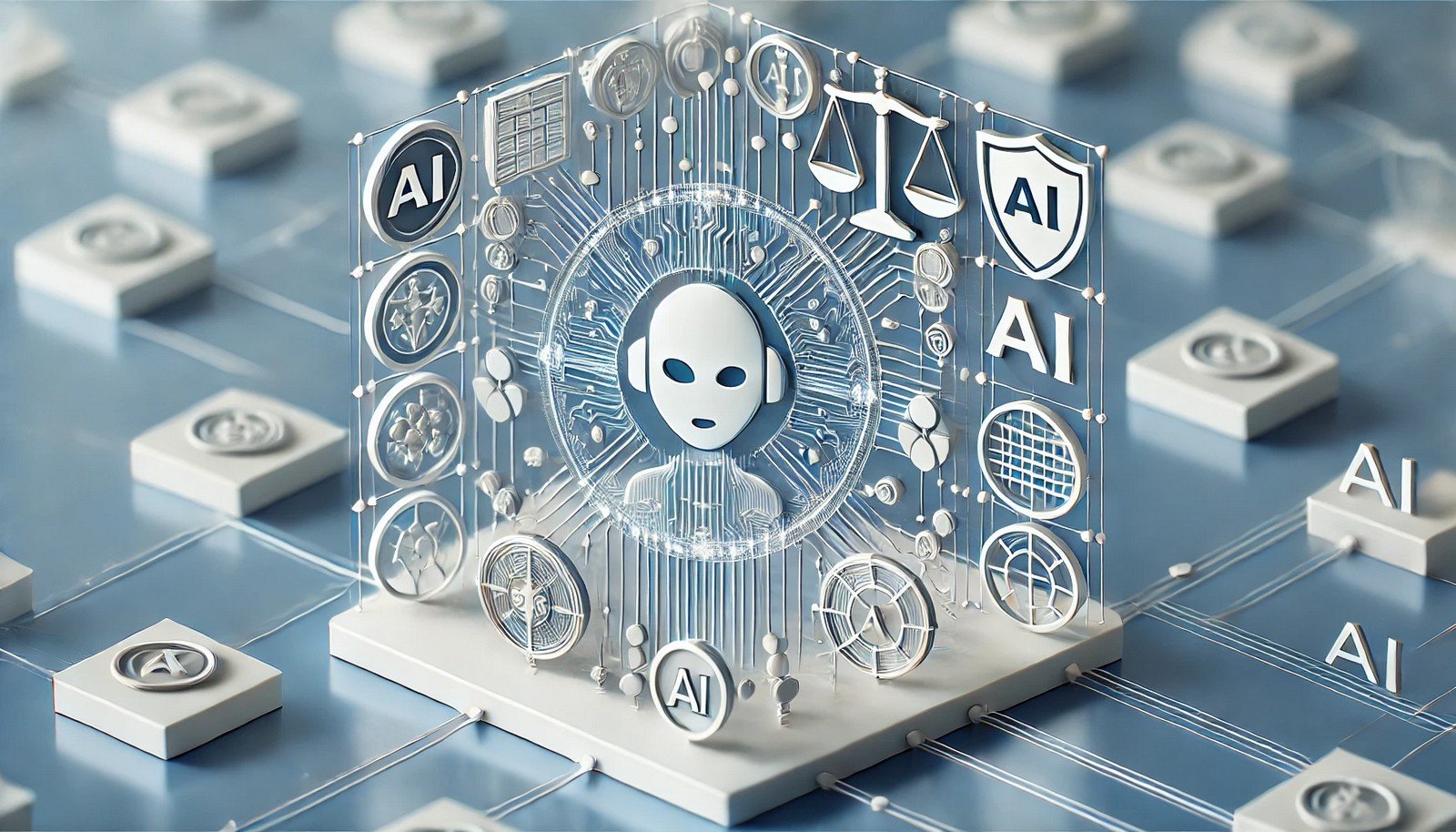AI Compliance

Quick Navigation:
- AI Compliance Definition
- AI Compliance Explained Easy
- AI Compliance Origin
- AI Compliance Etymology
- AI Compliance Usage Trends
- AI Compliance Usage
- AI Compliance Examples in Context
- AI Compliance FAQ
- AI Compliance Related Words
AI Compliance Definition
AI Compliance refers to the set of practices, policies, and regulations that ensure artificial intelligence systems operate within legal, ethical, and safety standards. This includes adherence to data privacy laws, ethical guidelines, and industry standards that govern AI development and deployment. Ensuring AI compliance helps organizations mitigate risks associated with privacy violations, biased algorithms, and unintended consequences of autonomous decision-making. Key frameworks for AI compliance often focus on transparency, accountability, fairness, and security.
AI Compliance Explained Easy
Imagine AI like a helpful robot assistant. Just like people have to follow rules at school or work, AI also has to follow rules to make sure it helps rather than causes problems. These rules make sure AI treats people fairly, keeps personal information safe, and doesn’t make mistakes that could hurt people. AI compliance makes sure that the AI robot behaves in a responsible way.
AI Compliance Origin
The need for AI compliance emerged as artificial intelligence began influencing various sensitive areas like healthcare, finance, and law. With AI’s potential to impact critical decision-making processes, the late 2010s saw an increased demand for standardized compliance measures, driven by governments and regulatory bodies aiming to safeguard public interests.
AI Compliance Etymology
The term "compliance" originates from the Latin "compliere," meaning "to fill up" or "complete." In modern usage, it refers to the adherence to laws and standards.
AI Compliance Usage Trends
AI compliance has seen a surge in focus as governments and organizations recognize the implications of unchecked AI systems. Europe’s GDPR, the US’s AI Bill of Rights, and other national frameworks set a global trend toward responsible AI use. In industries such as finance, healthcare, and e-commerce, compliance standards are becoming essential to avoid legal penalties and maintain consumer trust.
AI Compliance Usage
- Formal/Technical Tagging:
- Regulatory Compliance
- Data Privacy
- Ethical AI - Typical Collocations:
- "AI compliance regulations"
- "data governance in AI"
- "ethical AI standards"
- "compliance risk in machine learning"
AI Compliance Examples in Context
- In healthcare, AI compliance ensures that patient data used in diagnostic algorithms is anonymized and protected under strict privacy regulations.
- Financial institutions follow AI compliance guidelines to prevent biased credit scoring models that may discriminate against specific demographics.
- E-commerce platforms use AI compliance practices to regulate personalized recommendations, ensuring user data is securely managed and ethically utilized.
AI Compliance FAQ
- What is AI compliance?
AI compliance ensures that AI technologies adhere to ethical, legal, and safety standards. - Why is AI compliance important?
It prevents potential harm from biased, unsafe, or unethical AI applications. - How does GDPR relate to AI compliance?
GDPR influences AI compliance by setting strict data privacy standards for AI systems processing personal data in Europe. - What are the risks of non-compliance in AI?
Risks include legal penalties, loss of consumer trust, and unintended biases in decision-making. - How do organizations ensure AI compliance?
Through data governance frameworks, ethical guidelines, and adherence to regulatory standards. - What is bias in AI compliance?
Bias refers to unfair treatment of individuals or groups within AI decision processes, which compliance seeks to minimize. - Are there industry standards for AI compliance?
Yes, standards such as ISO/IEC for AI, NIST frameworks, and IEEE guidelines. - How does AI compliance benefit consumers?
It ensures fairness, data privacy, and safety in AI-powered services and products. - Is AI compliance required by law?
In many cases, yes; regions like the EU mandate strict regulations for AI applications. - What is AI transparency in compliance?
It refers to the requirement for AI systems to provide clear, understandable explanations for their decisions.
AI Compliance Related Words
- Categories/Topics:
- Data Privacy
- Ethics in AI
- Legal Standards
- Data Governance
Did you know?
AI compliance initiatives have prompted the creation of “ethics boards” in major tech companies to oversee AI projects and ensure they align with legal and ethical standards, fostering a culture of responsible AI innovation.
PicDictionary.com is an online dictionary in pictures. If you have questions or suggestions, please reach out to us on WhatsApp or Twitter.Authors | Arjun Vishnu | @ArjunAndVishnu

I am Vishnu. I like AI, Linux, Single Board Computers, and Cloud Computing. I create the web & video content, and I also write for popular websites.
My younger brother, Arjun handles image & video editing. Together, we run a YouTube Channel that's focused on reviewing gadgets and explaining technology.



Comments powered by CComment